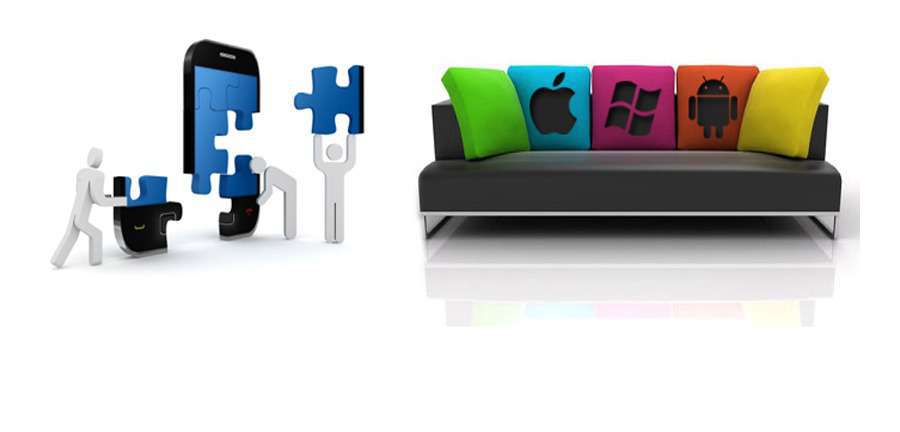
The house of tomorrow is smart. It knows exactly what its residents need and takes over many annoying duties. It sounds fantastic, but it’s a reality. Atmospheric lightning, well-tempered room or a message on your smartphone advising you when the washing machine is done. Living in a smart home is just more comfortable. All the connected…

Smart watches and fitness bracelets are gaining in importance. In the next 5 years the popularity of wearables is forecasted to increase enormously, especially in the healthcare sector. By 2021 the global healthcare device shipment and revenue is expected to reach 98 million units. written by: Anton Rykov Product Manager, Qulix Systems Smart watches and fitness…

Life is becoming smarter: smart city, smart home, smart car, smart watch. More and more aspects of our lives get influenced by the Internet of Things. It’s no longer a story from a fantasy movie. The majority of traditional devices like wash machines or fridges are already connected with a smart phone. written by: Anton…

The intensified regulatory and financial support is about to make healthcare smarter, cheaper and more effective. Healthcare providers strive to improve patients` access and experience, and adoption of high-end healthcare technologies is the best solution. We`ve rounded up to 5 trends that are about to change the healthcare industry.

The internet is packed with articles about Microsoft development strategies and their influence on the IT industry. While everyone is jabbering about their trends, hits and flops, I would like to draw your attention to some hidden aspects of the latest changes in Microsoft, and their underestimated potential.

Every day major financial institutions are under a cyber attack thus, cyber security issues retain leading positions on the annual bank agendas. For financial institutions and banks, in particular, a breach of security can result in a monetary loss, a fall in consumer confidence and damage to the brand. And that`s a strong reason to…

In the last two or three years, there has been a considerable change in the world of financial services caused by the rapid development of mobile technologies and “smartphonization”. Nowadays, a lot of fintech startups are ready to compete with traditional banking methods. According to McKinsey, there are more than 2000 fintech startups in the world today, in comparison with about 800 startups of 2015. Obviously, they’ve become a force that banks cannot ignore anymore.

Mobile searches and purchases are one the rise and don’t seem to stop. According to IBM Retail purchases by mobile have increased by 34 percent last year. It seems only natural to build a mobile application to always be in customer’s pocket. Being mobile helps retailers keep margins higher, reach more customers and increase loyalty.

We are now facing exciting changes in retail business. People are increasingly using their mobile devices for product research. Users demand better and more personalized experiences regardless of the media they use.

The introduction of mobile and contactless payments has become a real technological boost in Fintech industry. Having tried this technology once, consumers and retailers will never abandon it. Obviously, the technology is mutually beneficial and convenient. Despite the evident opportunities there are some issues that need to be taken into account.

For the past several years the term ‘Customer loyalty’ has become a real trend almost in all spheres where business interacts with a customer: banking, retail, telecommunications, insurance, etc. Every business understands that the more new customers attracted and old ones retained the higher is the ARPU.

When social networks are inevitable in our day-to-day life, it is a constant intention to create more. And every subsequent should be more sophisticated, smarter, innovative, full of interactive things like chats, video streaming calls, etc.

There is a lot of fussing around DevOps today. Experts call it a buzz word; specialists explain the term and describe the implementation tactics, while decision makers have long conversations about DevOps business benefit. So, what is it all about? Does anyone have a definitive answer? Well, no. Still, I`ll try to clarify some things.

Most Telecom operators are at a standstill. They lose existing customers and can hardly attract new ones. The market is overcrowded with telco operators and customers choose those who either provide the lowest pricing and/or good services. Most of the telcos can’t go below the minimum price thus the only way out is to improve the customer service.

Recently Telcos have seriously increased the range of Cloud based services. Data centers, storages, platforms create digital ecosystem allowing users to have 24/7 access to information. Cloud computing market size is expected to grow by $241Billin by 2020.* written by: Anton Rykov Product Manager, Qulix Systems Today Telecom operators stake on building positive customer experience….
